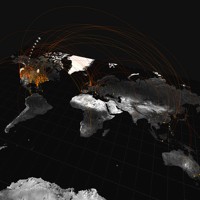In recent years, cyberattacks against the governments and business entities of economically developed and technologically advanced nations have proliferated, with the purpose of such attacks increasingly turning toward economic information collection and industrial espionage. As adversaries have expanded their computer network operations, the use of new venues for intrusions has increased, and the increasing use of portable devices that connect to the Internet and other networks will only create new opportunities for malicious actors to conduct espionage. Meanwhile, the trend among both corporations and government organizations toward the pooling of information processing and storage will present even greater challenges to preserving the security and integrity of sensitive information.
Today, changes in the ways that economic, scientific and other sensitive information is created, used and stored mean that nearly all business records, research results and other sensitive economic data are digitized and accessible on networks worldwide. As a result, many new products can be quickly copied and sold globally, before companies have earned a return on their investment in research and development, with the profits at times going to organized crime or terrorists. Indeed, cyberspace is a unique complement to the espionage environment because it provides foreign collectors with low risk of exposure, while facilitating the transfer of a vast amount of information and making it more difficult for victims and governments to assign blame by masking geographic locations. Economic espionage threatens the economic security of any nation, including the United States, and with the use of cyberspace, it has become even more dangerous.
What Is Economic Espionage?

